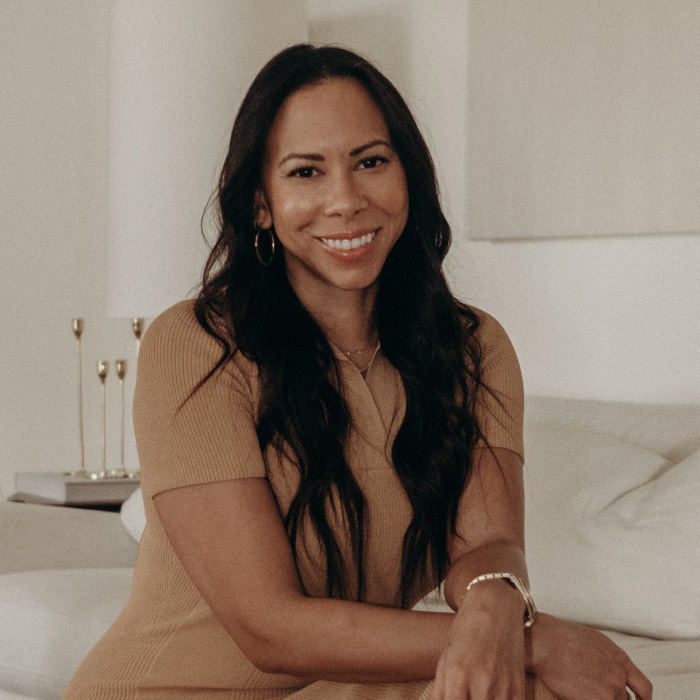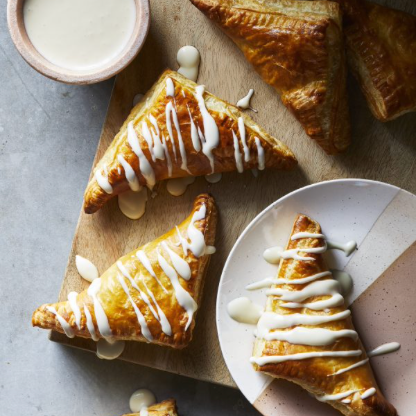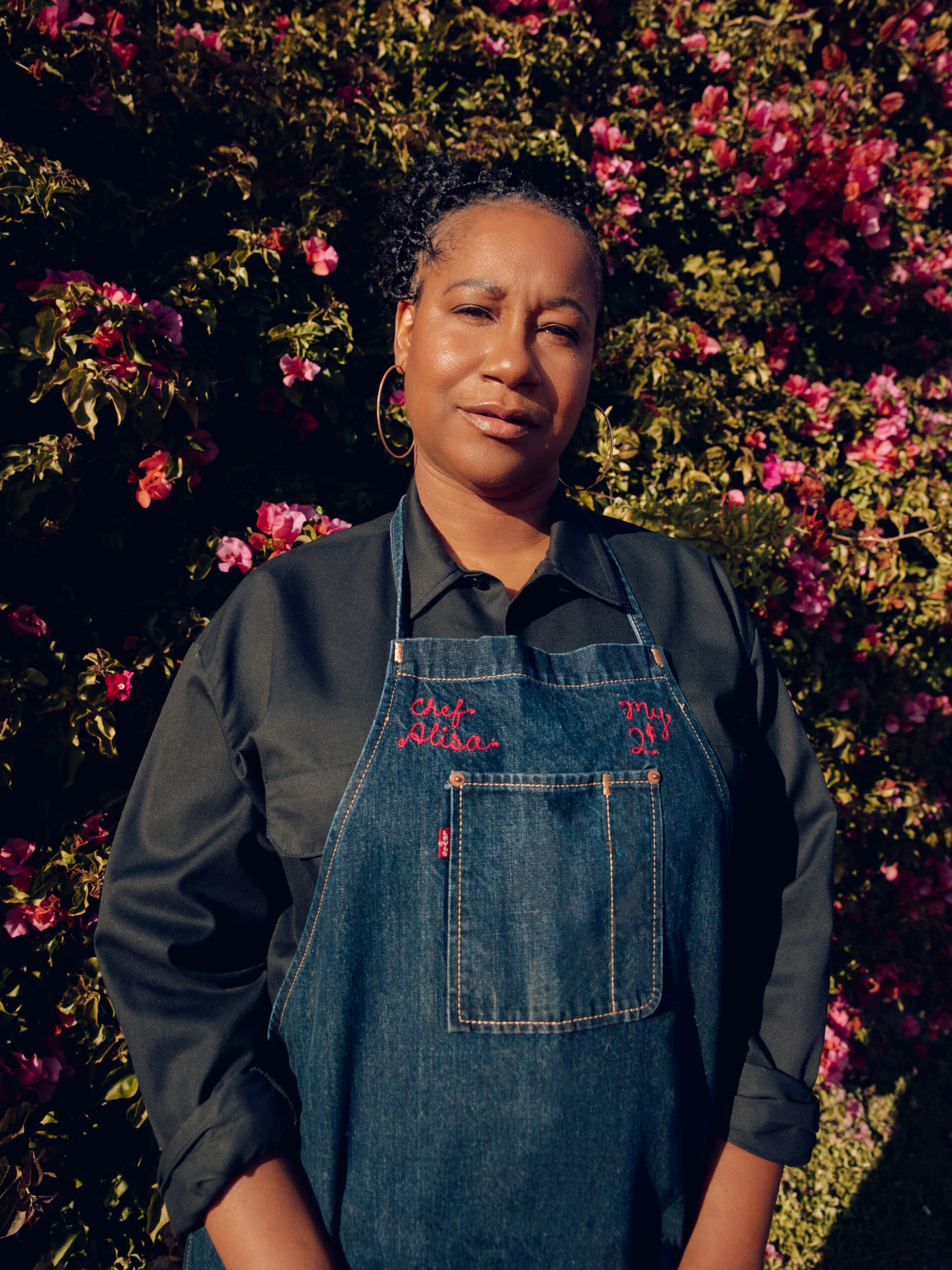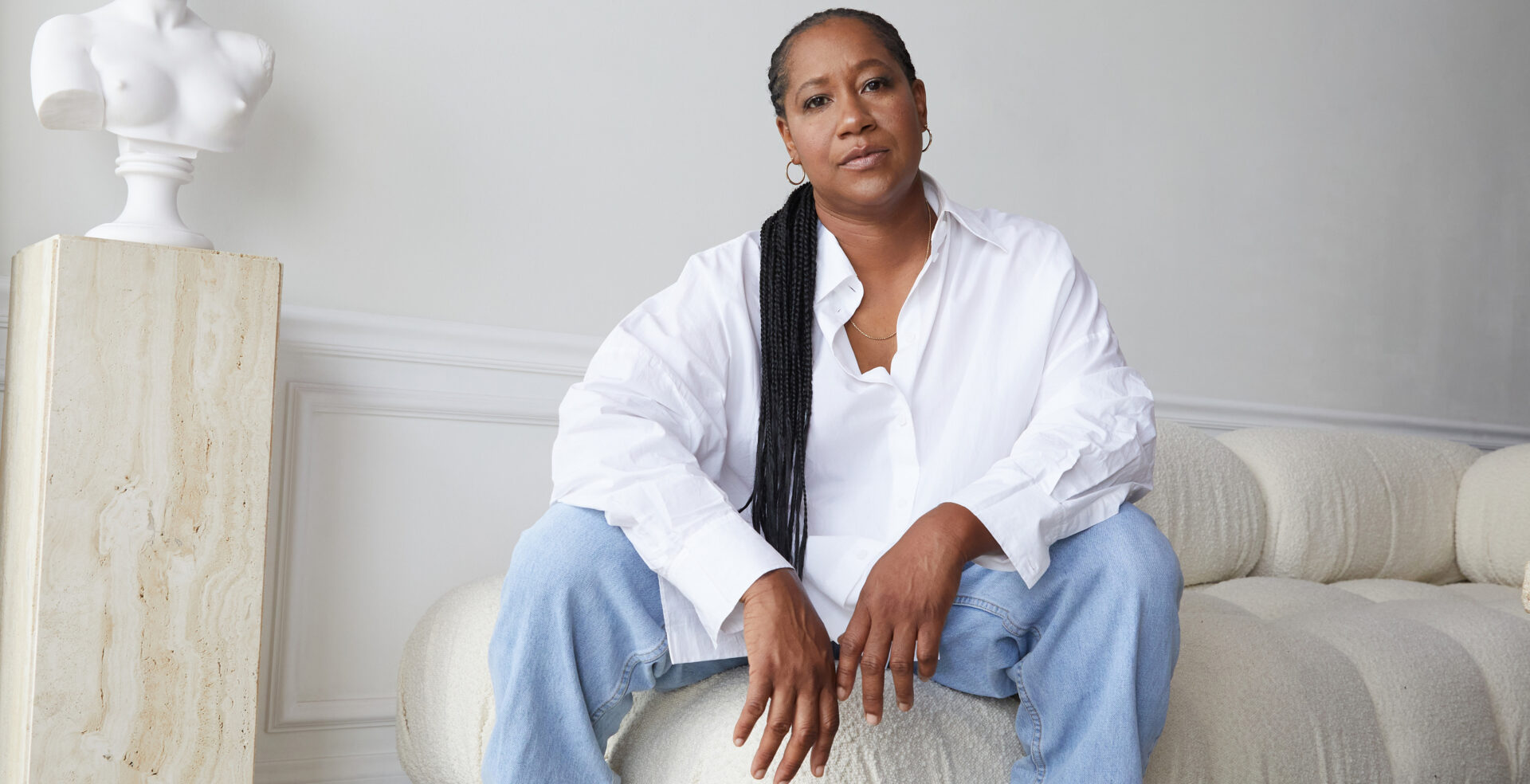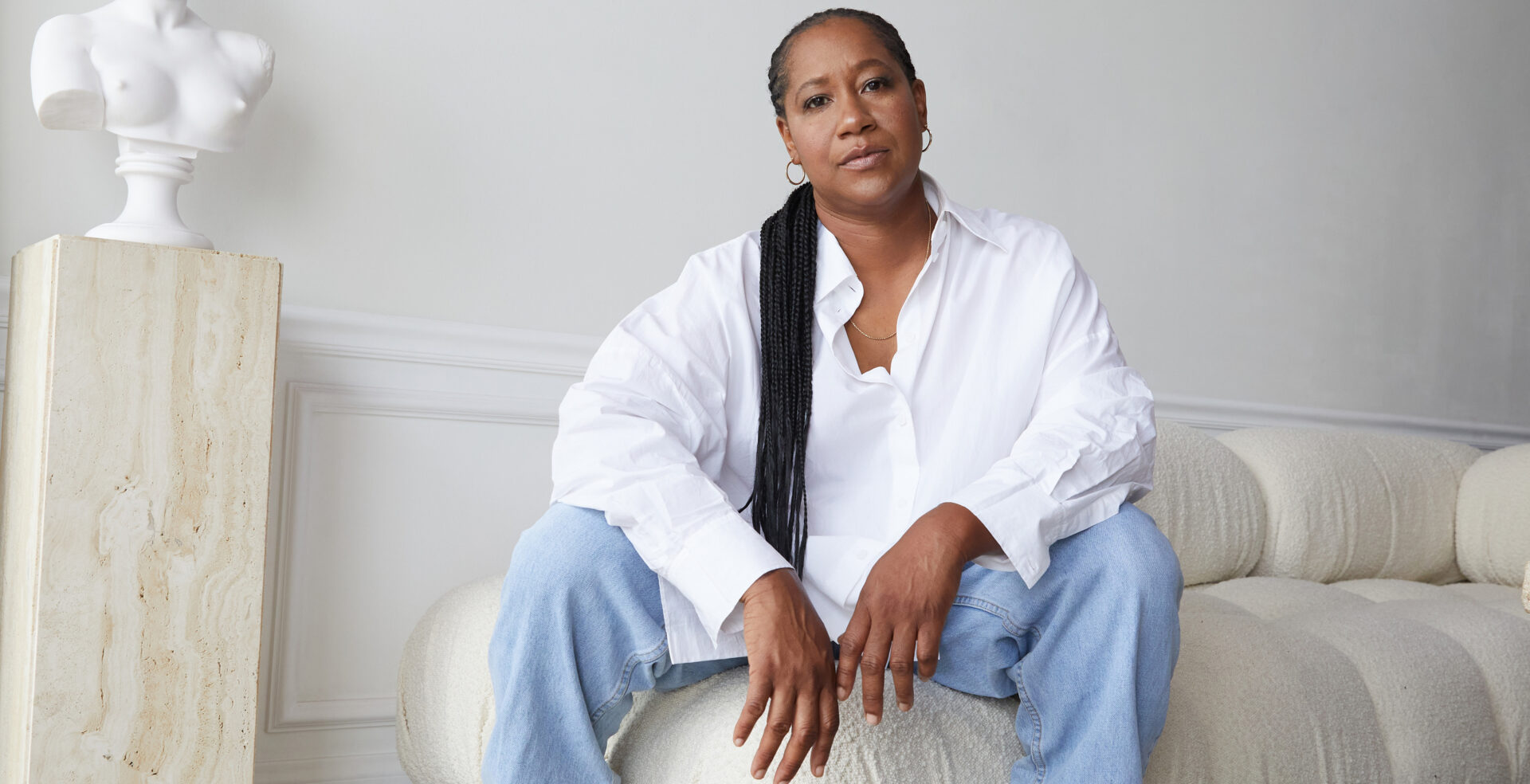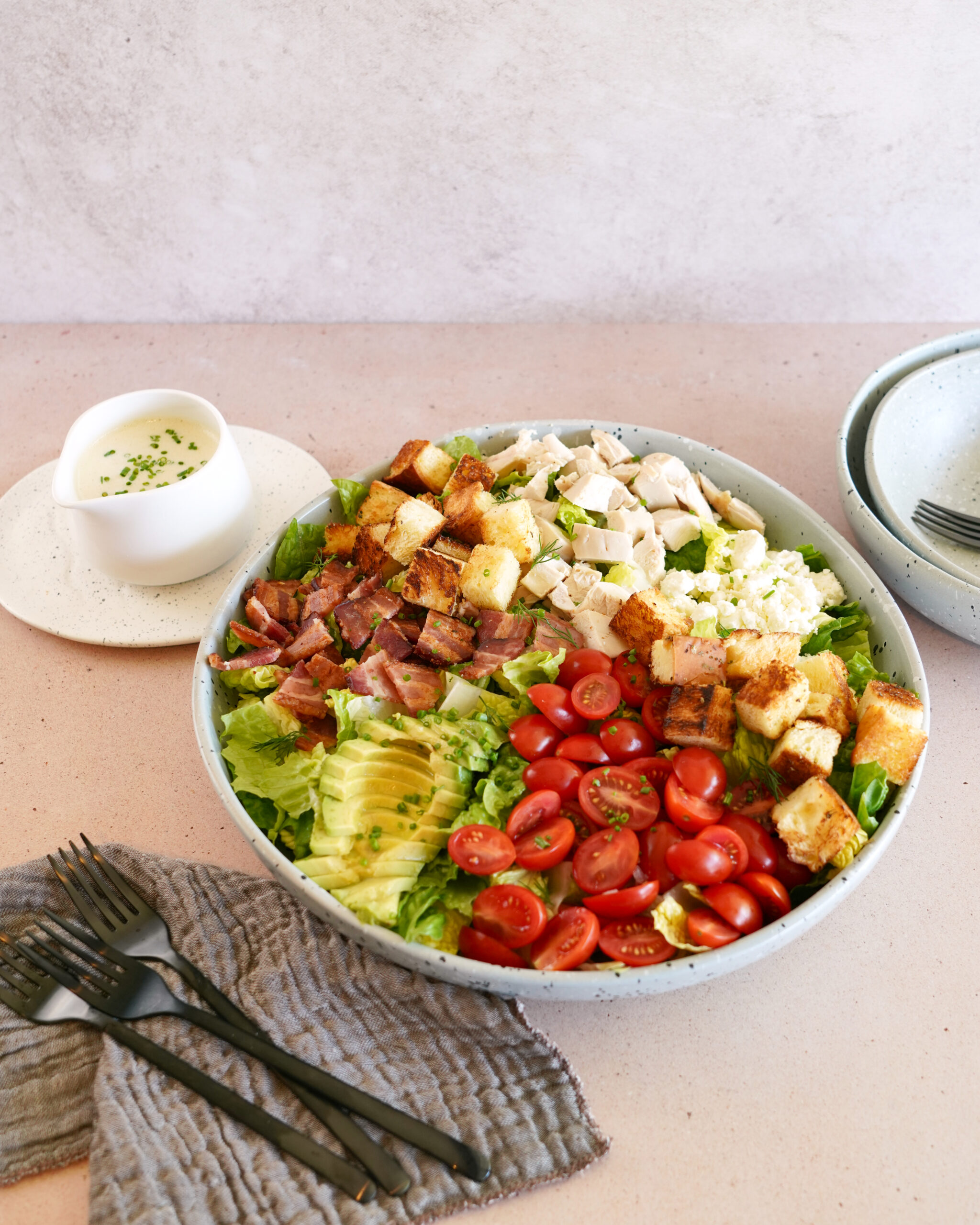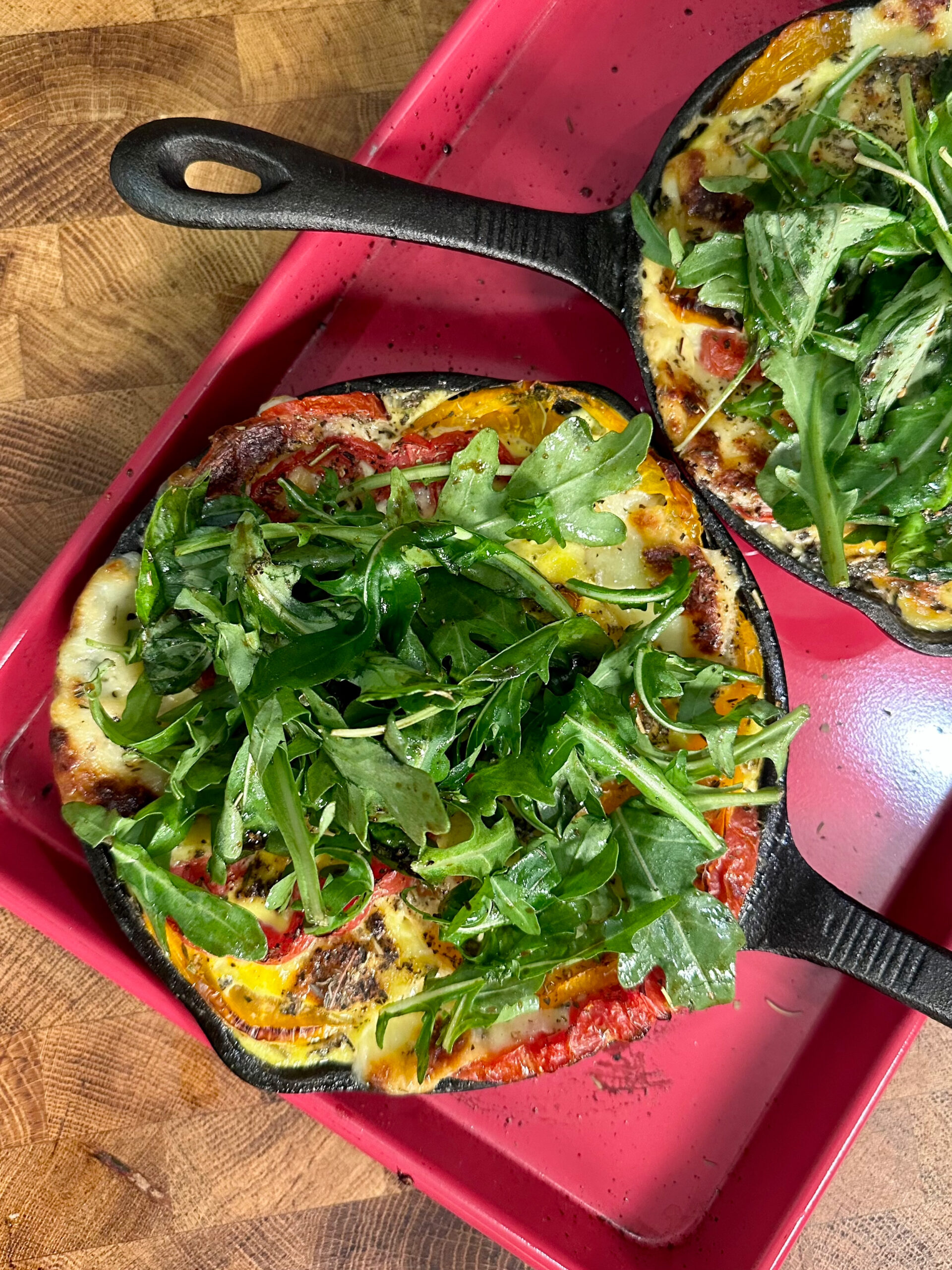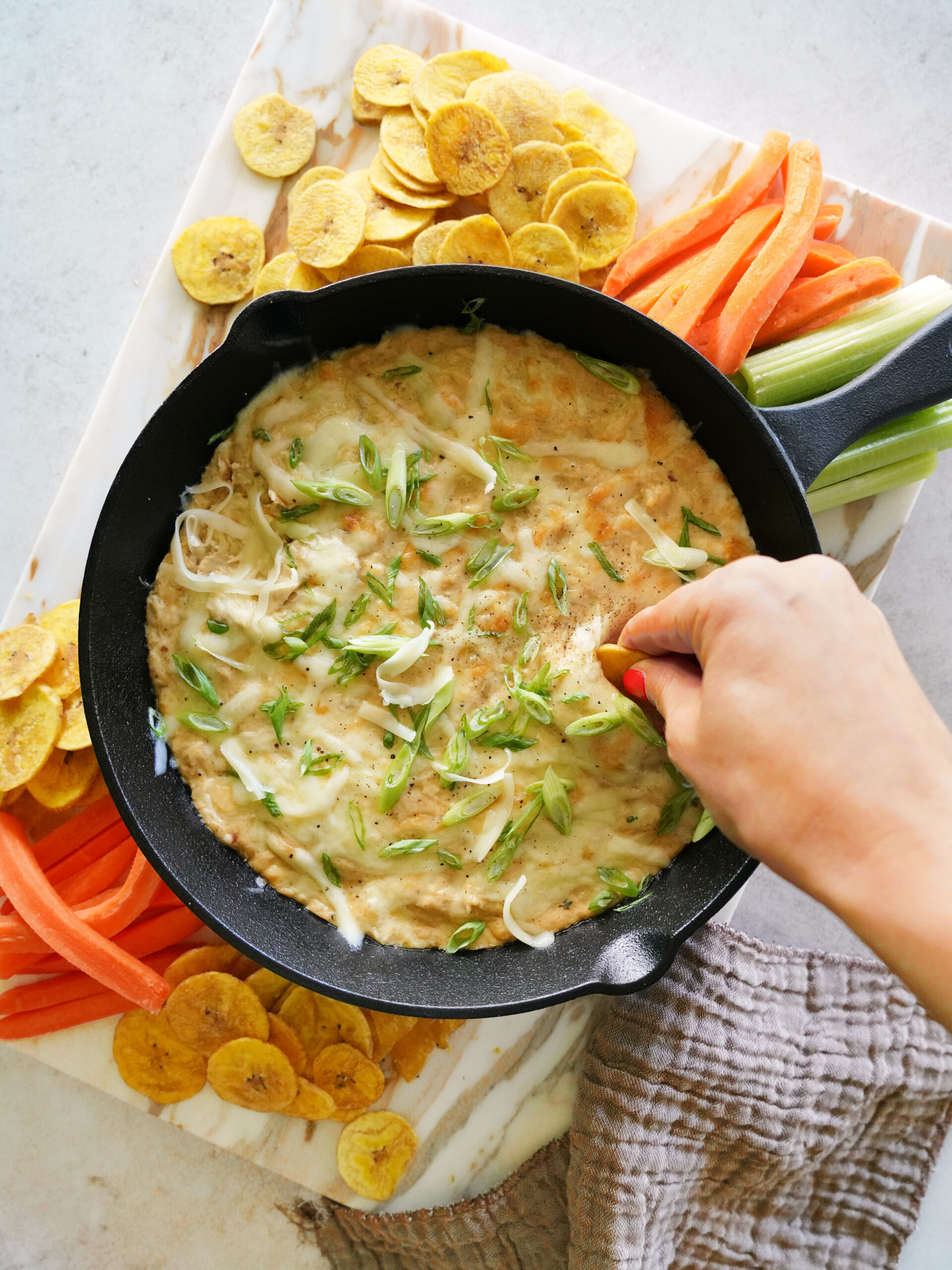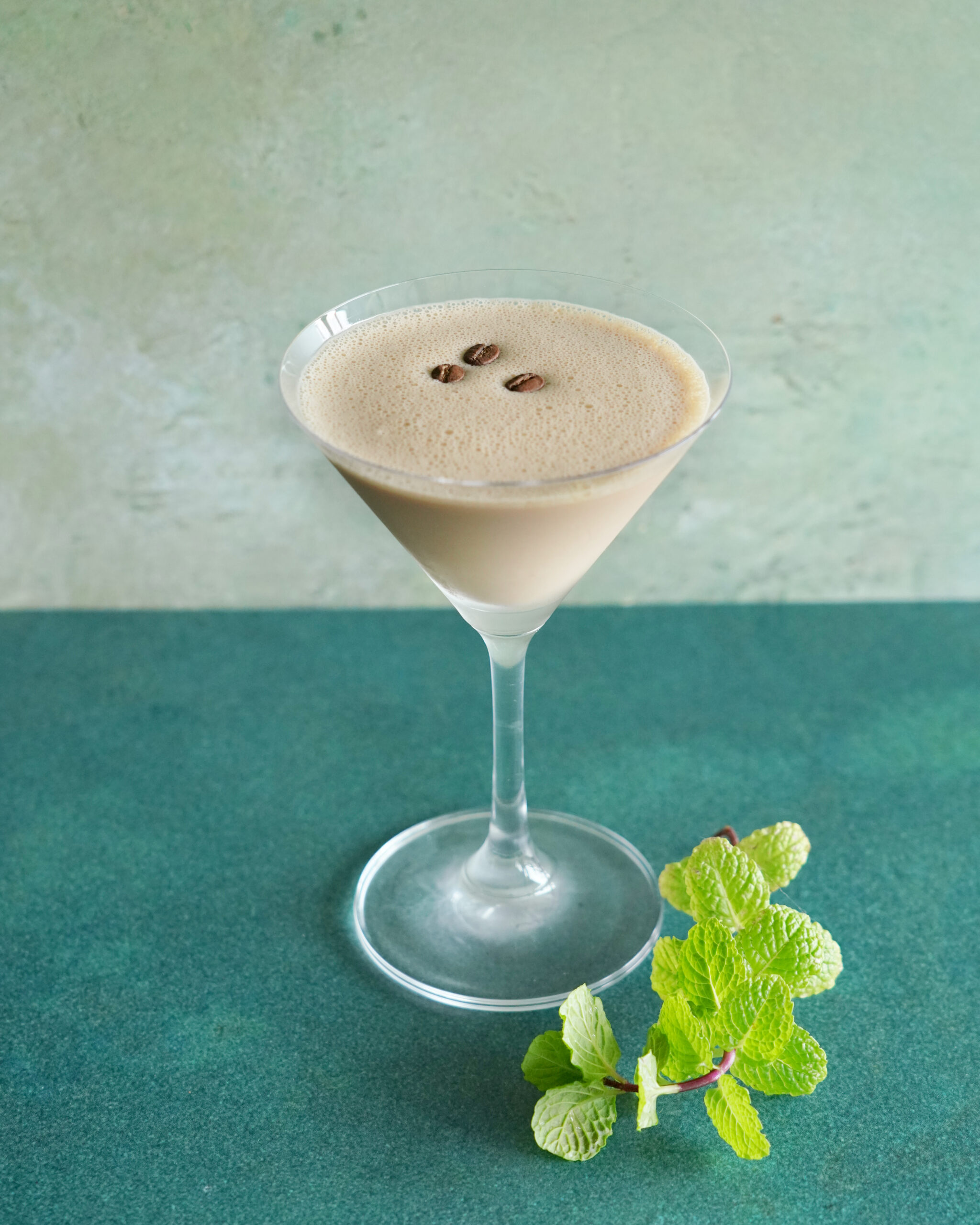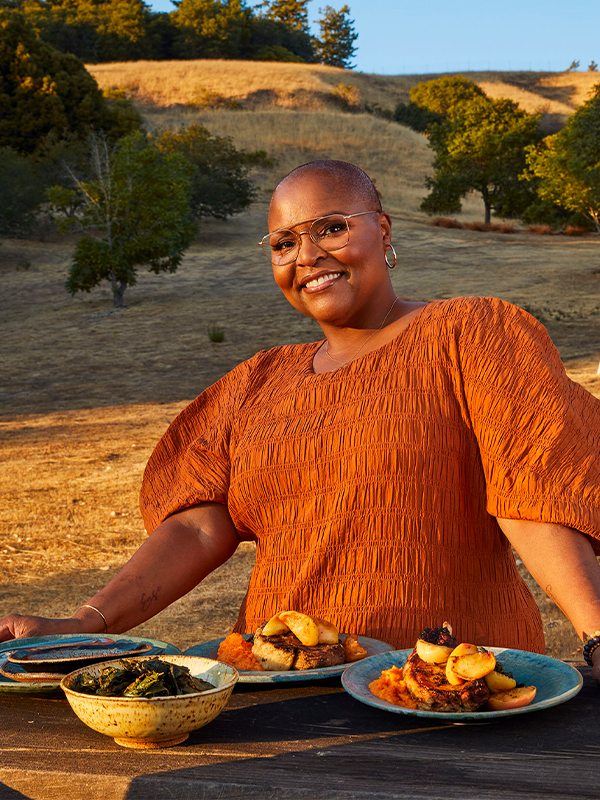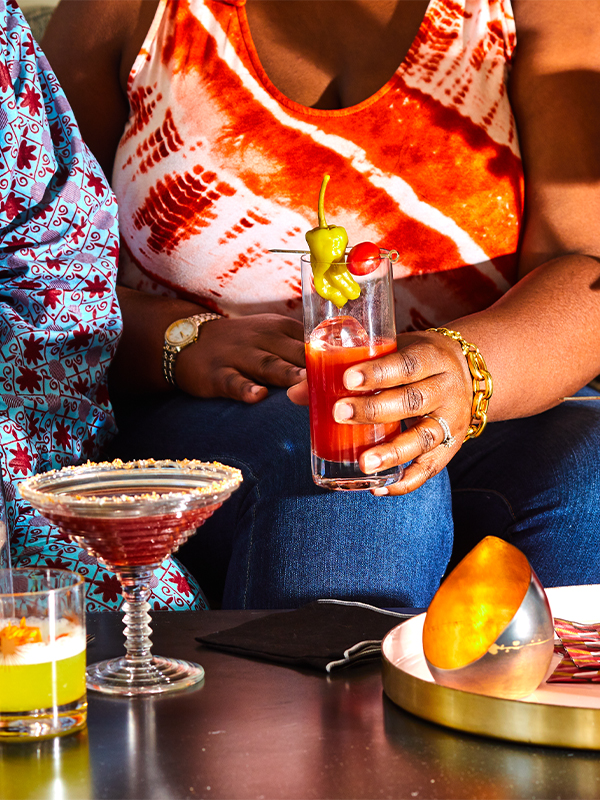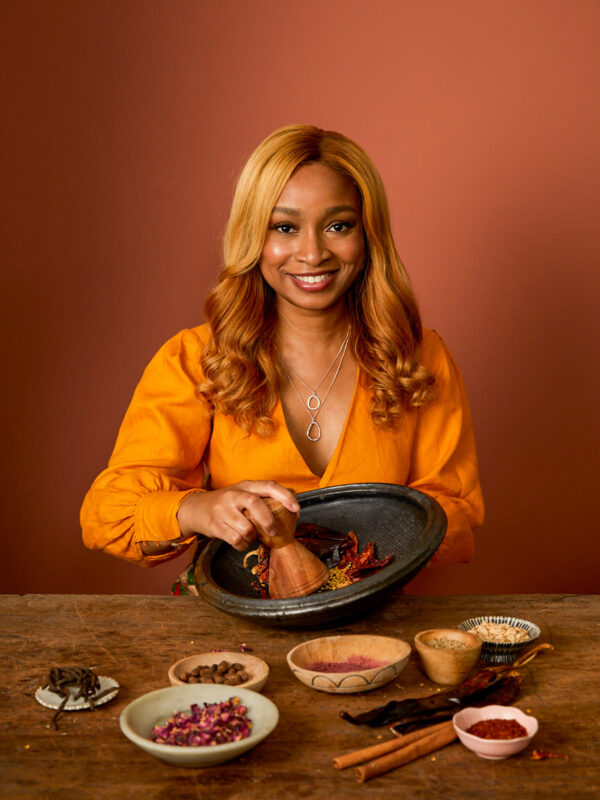As the owner of the L.A.-based soul food restaurant My 2 Cents, Alisa Reynolds is known for her flavorful cuisine that celebrates her rich West African, Native American and Mississippi roots. But the bold and bubbly chef always dreamed of connecting the dots between the soul food that she loves and the cultures around the world that have shaped this style of cooking.
Her dream has become a reality: In the new Onyx Collective-backed show, Searching for Soul Food, which premiered June 2 on Hulu, Reynolds travels the globe in search of the cuisine that encompasses her broadened definition of “soul food.” Her ventures include stops through Jamaica, South Africa, Italy and Peru. She also travels stateside, to places including Mississippi, where she was able to trace her own heritage back to Natchez, Mississippi’s Choctaw tribe.
Sweet July spoke with Reynolds about how she’s redefining what it means to cook soul food, the dishes that made the most indelible impression on her soul, and how she’s motivating younger generations of food lovers to embrace their heritage through food.
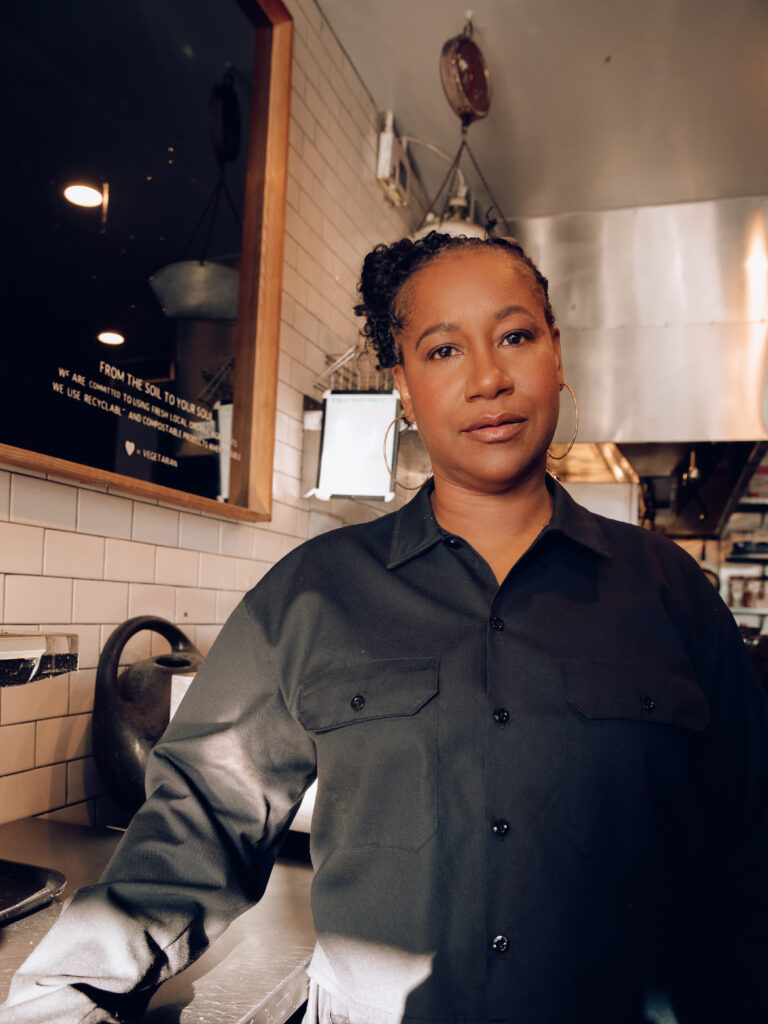
How do you define soul food?
Alisa Reynolds: I define soul food very vaguely—it’s love. It’s love and resilience. It’s literally in your DNA. I think that soul food is a passion that comes out of you when you’re giving to your family and you’re giving to your community. [Black people] created the term, we created the vibe, we created soul food. And from that, the similarities that exist around the world just blew my mind. Everyone’s history is involved in soul food. There’s cultures that don’t even like each other… but are secretly eating [each other’s] food. We can hate each other, but we can’t hate a meal. This is what food does. And so the soul in it, for me, is just that line of love that connects us all together, the line of pain that turns to love. We’re eating the food of these trials, tribulations, circumstances, history—all of that.
In your travels, what dish made the deepest impression on your soul and why?
AR: To be honest, I cried at each place. Literally. They got tired of me crying. I was just bursting into tears. I don’t even know why. I don’t know if it’s because I’ve manifested my life’s dream or if it’s meeting these people that take their legacy so seriously. I wanna say each place, [but one is] the Maroons in Jamaica—they’re still doing this work and keeping that tradition alive. People have been eating jerk and don’t understand how it came about and became a means of survival. This is history on the plate.
It’s one thing to love how something tastes, but it’s that extra layer of, “Wow, I know what it took to make this meal.” It reminds you, is this the worst time in history? I’m telling you, for people that [pioneered] this food, shit was bad. Okay? It was a horrible time. So I want people to be reminded of the love—it carries on history. And that’s the importance of keeping legacy alive, because clearly it needs to be here.
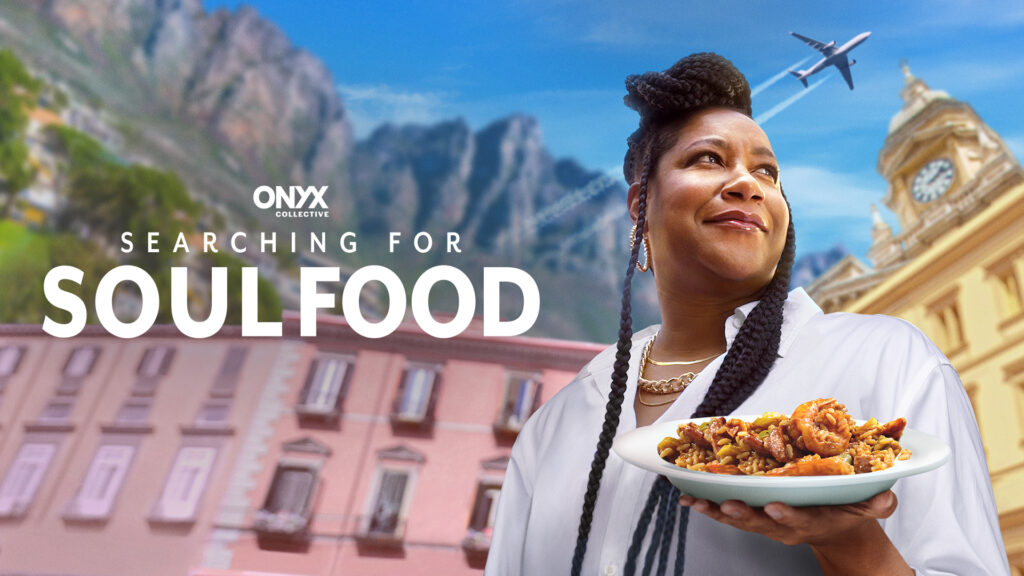
With Juneteenth coming up, how do you choose to acknowledge the holiday, and what do you cook to commemorate the the history embodied in that day?
AR: I’ve been celebrating Juneteenth for the last 15 years. I was the only one pounding the Juneteenth signs in 2013. So, now that everybody’s on board, I’m going to do what I’ve always done—celebrate. My mom is still alive, and she was around when Juneteenth was “Juneteenth.” And the reason why it was [called] Juneteenth is because they didn’t have the internet. They didn’t announce, “Hey, you’re free.” People didn’t know what day it was. So they said Juneteenth, because it could have been on the 19th or the 17th. So that whole week, they just celebrated each other.
I celebrate every day, obviously, because I have a soul food restaurant. When we first opened, we used to have history lessons every day on who we were as people. But what we do for [Juneteenth] is we tell stories. Barbecue is big on Juneteenth, so I [cook] barbecue fried chicken. My mom remembers the classics on Juneteenth—barbecue, watermelon and red soda pop.
How can we get young people to embrace this rich history?
AR: I think that we just show them the power of it. The power of the food lasting this long and being in our lives, and how beneficial it is to continue legacies. People forget what happened 10 years ago. I think that we need to make legacy cool again. We need to make sitting around the table talking cool again. I think that Black people need to hug and embrace each other as much as possible. But at the same time, we need to learn why we are amazing instead of just always saying we’re amazing. There’s thousands of stories that we don’t know. It’s just like trying to find a recipe that Grandmama wrote. It’s hard sometimes, but somebody knows that story. And I think that maybe this show will make people wanna go, “Wow, who are we?”
Has the experience filming Searching for Soul Food set the tone for any future projects?
AR: Oh my gosh! I have cookbooks ready to go and lined up. I can’t wait to do a cookbook! Shout out to my sister Reezy, my [co-author]. The first cookbook is going to be called Two Cooked Sisters. We’ll have a book that shows both traditional and modern ways of cooking soul food.
This interview has been edited and condensed for clarity.
Featured image: Max Hemphill



